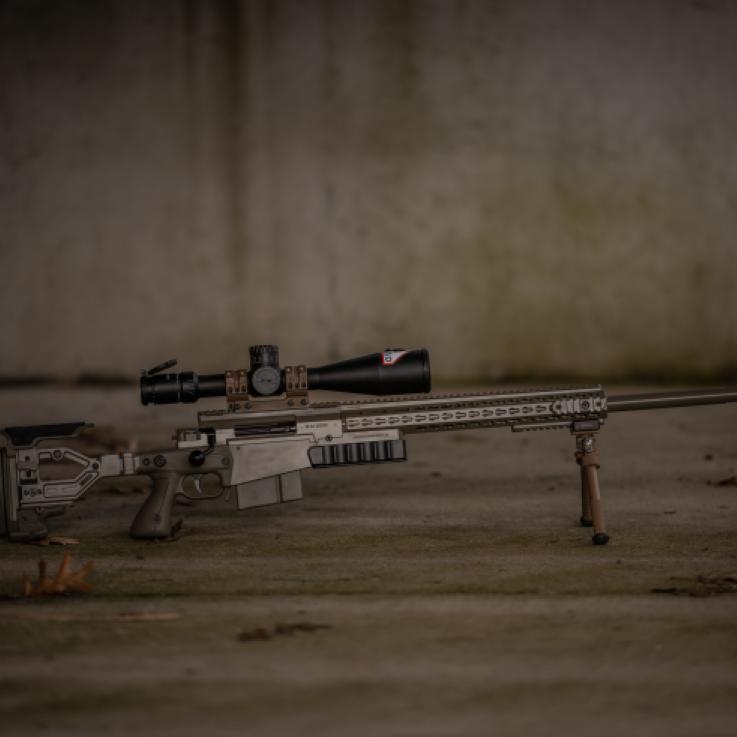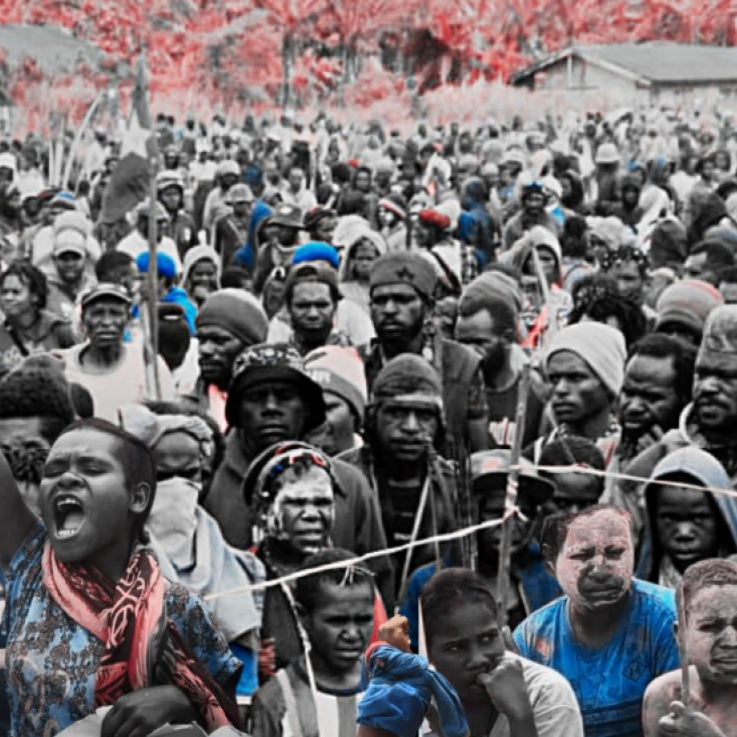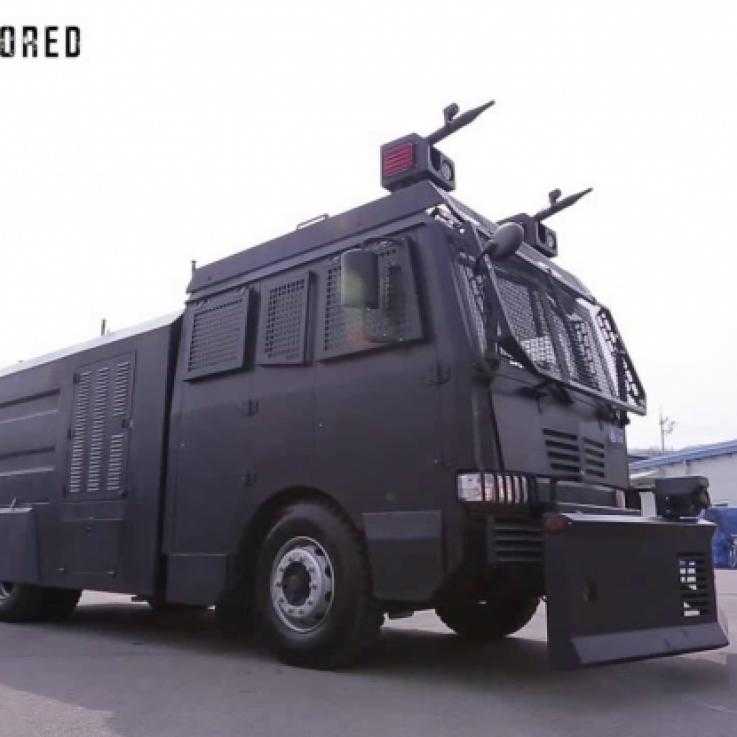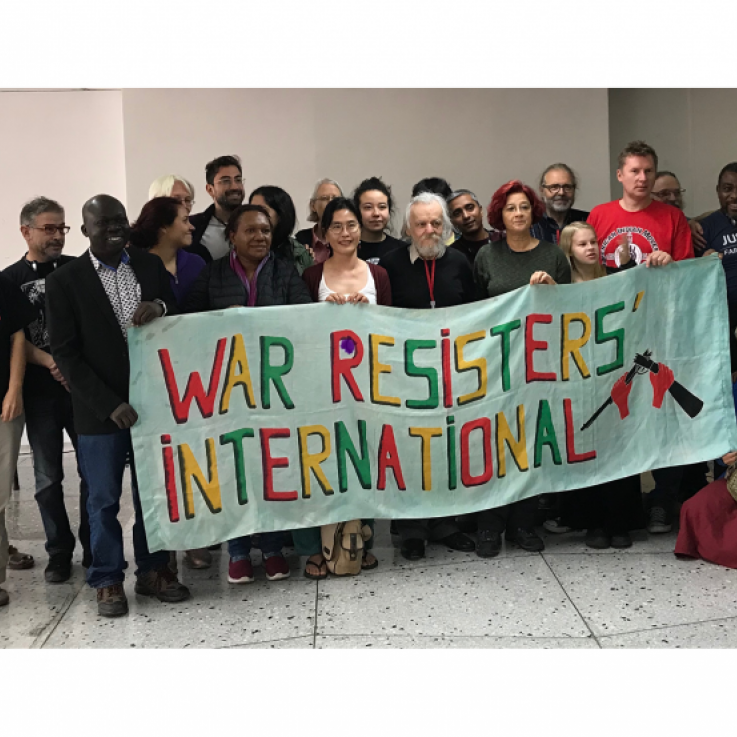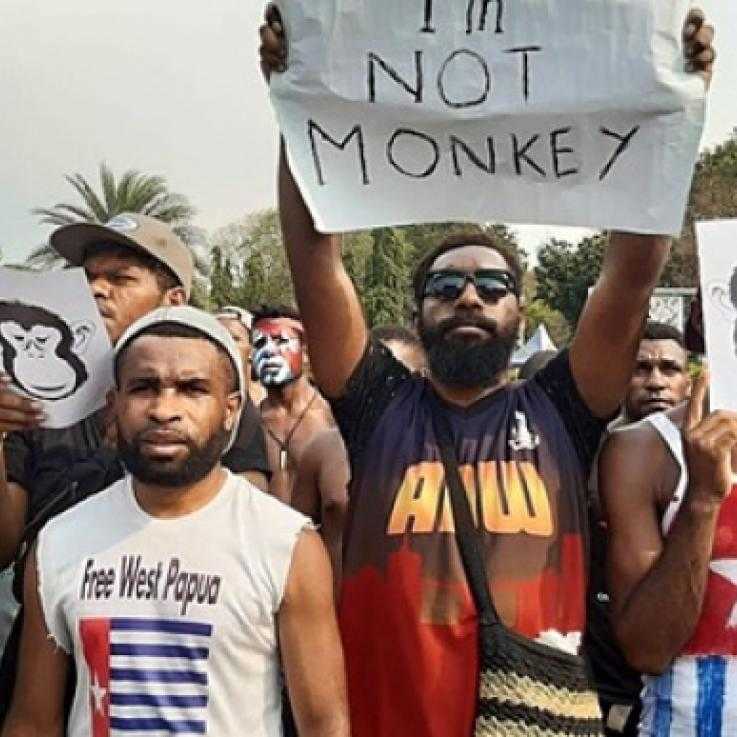Accuracy International (AI) is a British company based in Portsmouth, specialising in the production of high-end, hand built, precision sniper rifles and associated equipment. Weapons manufactured by AI have been used extensively in conflict zones, including states accused of human rights abuses.
The website War on West Papua was launched in July. The website identifies a wide-range of weapons and military equipment used by the Indonesian security forces in their ongoing occupation of West Papua.
We are excited to share news of a new website, called War on West Papua. The website identifies a wide-range of weapons and military equipment used by the Indonesian security forces in their ongoing occupation of West Papua.
On 1st April, activists the Make West Papua Safe (MWPS) campaign occupied the lobby of a Thales Australia building, and displayed images of West Papuan activists killed by security forces in the last year.
Activists from the South Korean organisation World Without War have taken direct action inside the DX Korea arms fair, targetting companies associated with the war in Yemen, the Azerbaijan-Armenia conflict, and human rights abuses in West Papua.
Daeji P&I is a company based in South Korea builds a number of vehicles designed for use by police units, including water cannon and armoured personnel carriers.
At WRI's recent conference and meeting in Colombia, we were delighted two welcome six new affiliates to our international network.
In August 2019 we were excited to welcome a new affiliate to our international network - Pasifika, based in West Papua. In late August the Indonesian military began a violent crackdown in West Papua, prompting a mass nonviolent response across the region.
Rosa Moiwend
A former Dutch colony, West Papua was occupied by the Indonesian military in 1963. The international framework that allowed this occupation to take place was based on the economic and political interests of the United States and supported by its allies the Netherlands, the United Kingdom and Australia. The United Nations actively denied West Papuans right to self-determination and supported the Indonesian occupation. During the first few years of the Indonesian government’s occupation West Papuan resistance was brutally crushed through military operations and aerial bombardment. Two years before the United Nations formally facilitated the transfer of Dutch sovereignty to Indonesia – all without West Papuans consent – the United States and Indonesia established a massive gold and copper mine in West Papua. From the beginning the Freeport mine was declared a national asset and security project protected by a massive Indonesian military presence. Old fashioned colonialism marked by territorial occupation by a foreign military force remained but was augmented by neo-colonialism: intensive capital investment in the extractive industries and the influx of large numbers of Indonesians to displace indigenous West Papuans. In the early years the Indonesian government’s transmigration program was funded by the World Bank. Although on paper the project was designed as development to benefit ‘the poor’ in reality the Indonesian government’s sole objective was to protect its territorial integrity. It was militarised development that in actual fact generated poverty.
Jason MacLeod and Rosa Moiwend
Negotiating the insider outsider terrain as a solidarity educator in the West Papua freedom movement
Alex Rayfield In a recent article (Rayfield and Morello 2012) a colleague, Rennie Morello and I wrestled with our outsider/insider identities as we facilitated nonviolent training and education with and for West Papuan activists longing for freedom. We wrote: In some sense we might have once identified ourselves as outsiders to the movement offering support “in solidarity”. But over time the movement has stirred-up trouble for us and our insider-outsider identities. We work in solidarity with Papuan activists in their struggle for self-determination, but we are not Papuan. In this way we are cultural outsiders. More importantly, while we attempt to share the risks and costs of working for peace and justice in West Papua, we will never pay the same price as Papuan activists. In this way, we are political outsiders. Connected to this is our commitment to non-interference – Papuan activists themselves must determine the strategic direction and tactical choices of the movement. In this way we are movement outsiders.
